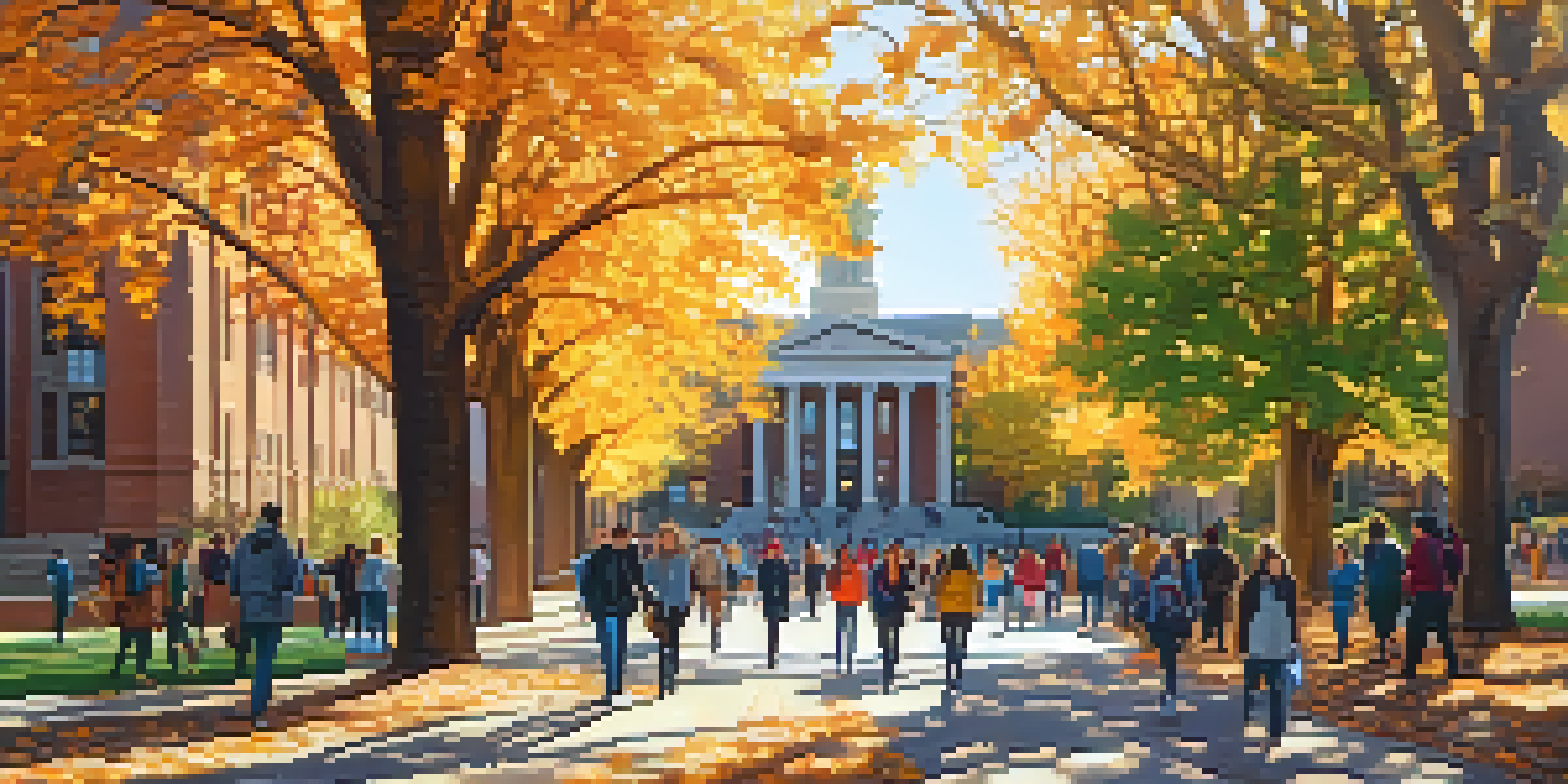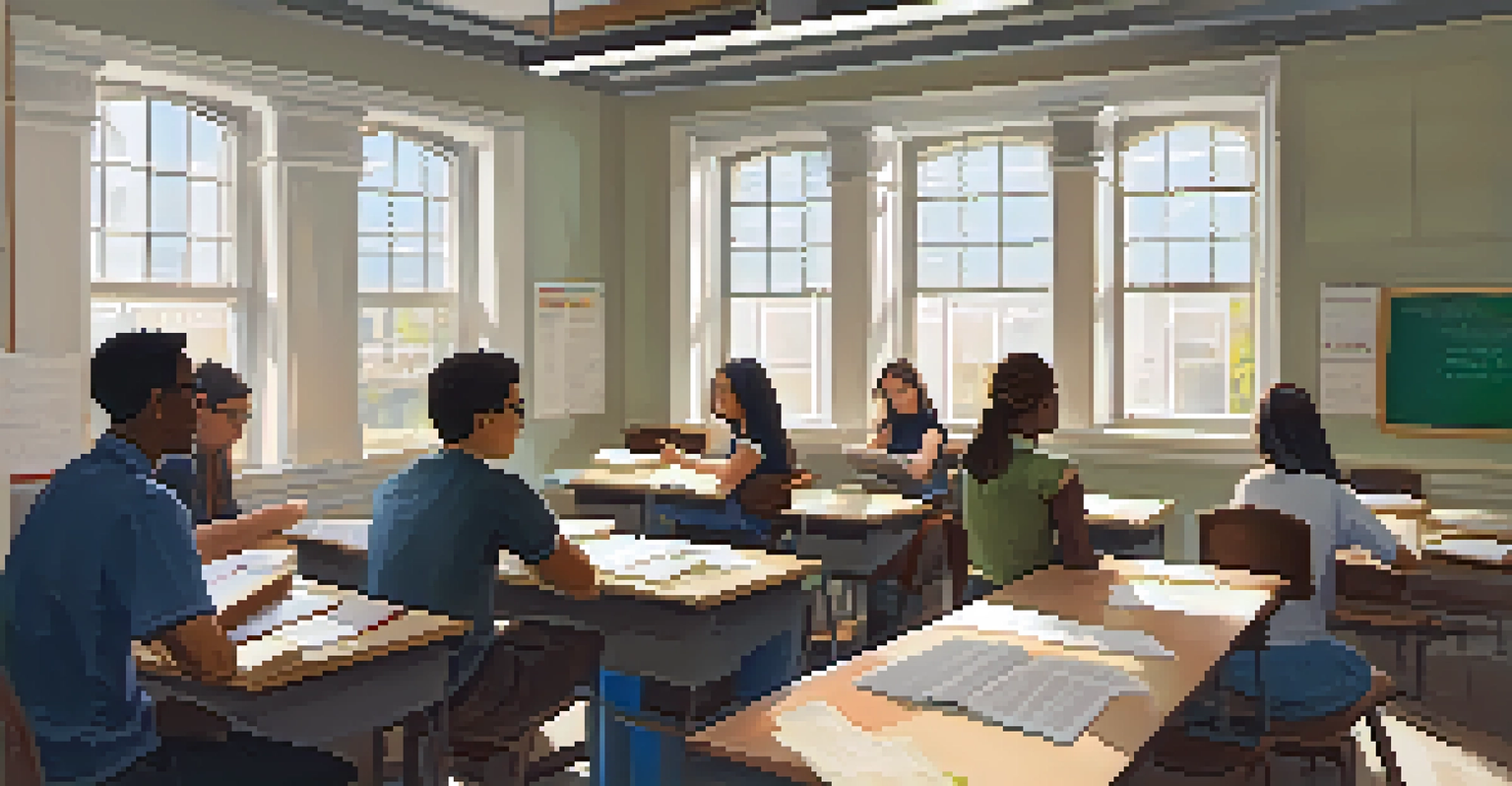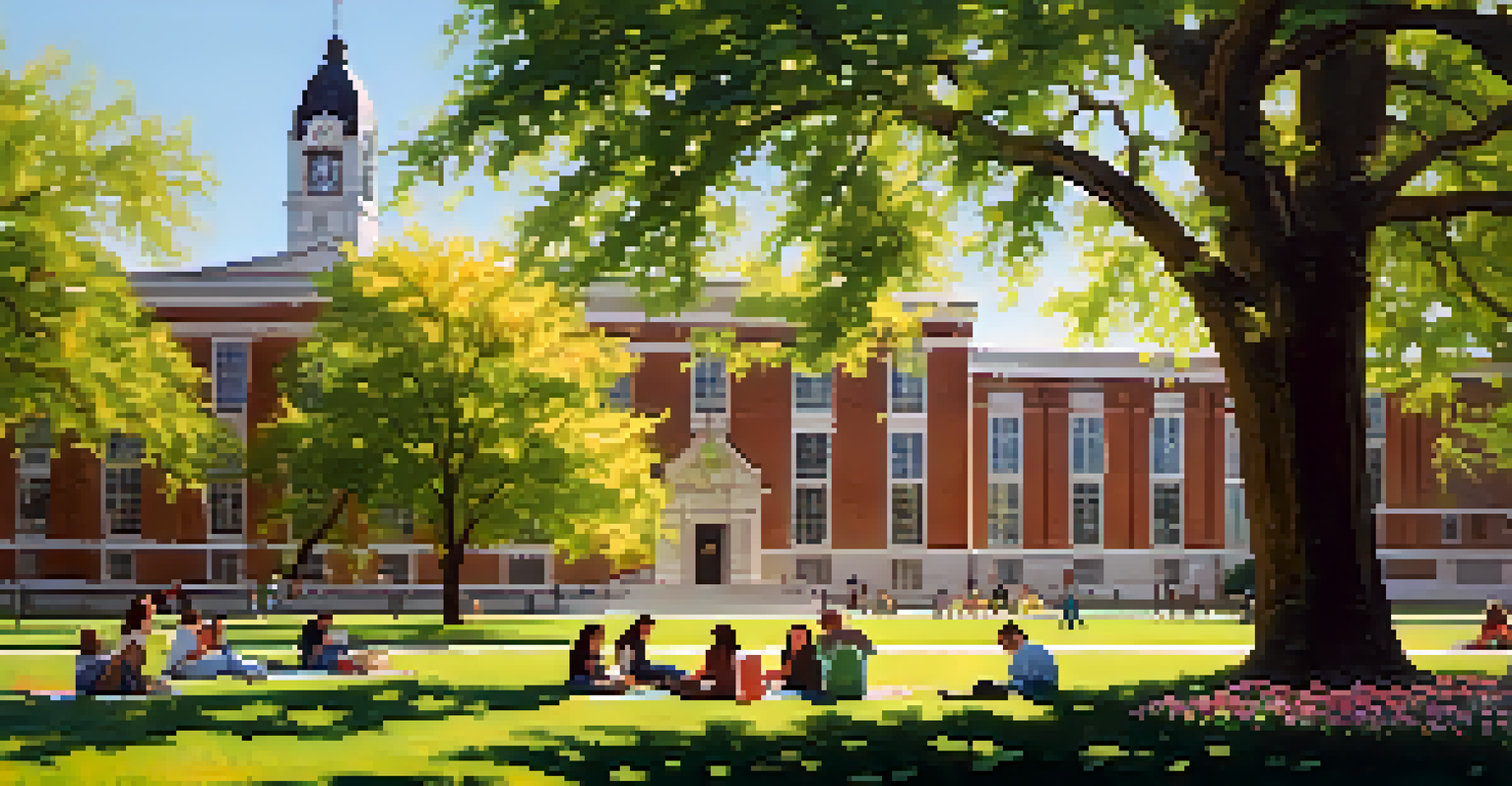Comparing Denver's Private and Public Colleges and Universities

Overview of Denver's Higher Education Landscape
Denver is home to a vibrant mix of private and public colleges and universities, each offering unique opportunities for students. The city’s educational landscape features renowned institutions like the University of Denver, a prestigious private university, alongside the University of Colorado Denver, a strong public option. Understanding the differences between these types of schools is crucial for prospective students as they navigate their educational paths.
Education is the most powerful weapon which you can use to change the world.
Public colleges generally receive funding from state governments, allowing them to offer lower tuition rates for in-state students. On the other hand, private colleges rely primarily on tuition and donations, which can lead to higher costs but often come with generous financial aid packages. As students weigh their options, knowing the financial implications can significantly influence their decisions.
Both types of institutions offer diverse programs and degrees, but the experience can vary widely. Public universities often have larger student bodies and a wider range of extracurricular activities, while private colleges may focus more on personalized education and smaller class sizes. This variety ensures that students can find a college that aligns with their academic and social needs.
Cost and Financial Aid Differences
Cost is often the first thing students consider when choosing a college. Public universities typically have lower tuition rates, especially for in-state residents, while private colleges can be more expensive. However, it’s essential to consider the total cost of attendance, including fees, housing, and textbooks, as these can vary greatly between institutions.

Financial aid options also differ between public and private schools. Public universities may offer state-funded scholarships and grants, while private colleges often provide substantial institutional aid to attract students. This means that, for some students, a private college might end up being more affordable than it initially appears.
Cost Differences Matter
Public colleges typically offer lower tuition rates, especially for in-state students, but financial aid can make private colleges more affordable than they seem.
Additionally, many private colleges have a commitment to meet 100% of demonstrated financial need. This can be a significant advantage for students from lower-income families, potentially making a private education more accessible than expected. Thus, it's essential for students to explore all financial aid options available to them.
Academic Programs and Specializations
When it comes to academic offerings, both public and private colleges in Denver boast a wide array of programs. Public universities often have more extensive research facilities and resources due to their larger size and funding. This means students interested in research opportunities may find a wealth of options at these institutions.
An investment in knowledge pays the best interest.
Private colleges, however, may offer specialized programs that cater to niche interests, providing an intimate learning environment with focused attention from faculty. This can be particularly appealing for students pursuing specific career paths or fields of study that require specialized knowledge.
Moreover, many private institutions emphasize liberal arts education, encouraging a well-rounded academic experience. This focus can help students develop critical thinking and communication skills, which are invaluable in today’s job market. Each type of institution has its strengths, so students should consider their academic goals when making a choice.
Campus Culture and Student Life
Campus culture can significantly influence the college experience, and this is where public and private institutions often differ. Public universities tend to have a more diverse student population, thanks to larger enrollment numbers and a broader range of programs. This diversity can enrich the social experience and foster a variety of perspectives.
Private colleges, in contrast, often cultivate a close-knit community atmosphere. Smaller student bodies can lead to stronger interpersonal connections and a sense of belonging. For students who value collaboration and personal relationships, this environment can be incredibly rewarding.
Class Size Influences Learning
Smaller class sizes at private colleges foster closer faculty interactions, while larger public universities may limit individual attention.
Extracurricular activities also play a role in campus culture. Public universities typically offer a wide range of clubs, organizations, and sports teams, while private colleges might emphasize community service and engagement. Understanding what each institution offers outside the classroom can help prospective students find the right fit for their lifestyle.
Class Size and Faculty Interaction
Class size can greatly impact the learning experience, and this is another area where public and private colleges diverge. Public universities often have larger classes, especially in introductory courses, which can make it challenging for students to receive individual attention from professors. This can be daunting for some students who thrive in smaller, more interactive environments.
On the other hand, private colleges typically feature smaller class sizes, allowing for more direct interaction with faculty. This can lead to personalized instruction and mentorship opportunities, which can be invaluable for students looking to deepen their understanding of their chosen field.
Furthermore, smaller classes can foster a more collaborative learning atmosphere where students feel comfortable sharing ideas and engaging in discussions. For those who prioritize close relationships with their instructors, a private college may be the better option.
Career Services and Post-Graduation Support
As students approach graduation, the support they receive from their colleges can be crucial in launching their careers. Many public universities have extensive career services that cater to a large student population, offering resources like job fairs and networking events. These services can be beneficial for students looking to make connections in various industries.
Private colleges often pride themselves on providing personalized career counseling, which can include tailored resume reviews and one-on-one interview preparation. This individualized approach can help students feel more confident as they enter the job market.
Campus Culture Varies
Public universities usually have a diverse student body, while private colleges often create a close-knit community atmosphere.
Additionally, some private institutions have strong alumni networks that can provide valuable connections for recent graduates. These networks can help students secure internships and job opportunities, making post-graduation support a key factor to consider when choosing a college.
Conclusion: Choosing the Right Fit for You
Ultimately, the decision between a private and public college in Denver comes down to personal preference and individual circumstances. Students should consider factors such as cost, academic programs, campus culture, and post-graduation support when making their choice. Each type of institution has its strengths, and understanding these differences can help students make informed decisions.
Visiting campuses, talking to current students, and exploring financial aid options can provide further insight into what each school has to offer. Taking the time to research thoroughly can lead to a more fulfilling college experience tailored to one's needs and aspirations.

No matter the path chosen, both private and public colleges in Denver offer valuable educational opportunities that can shape a student’s future. The key is to find the right fit that aligns with personal goals and values, ensuring a rewarding journey through higher education.